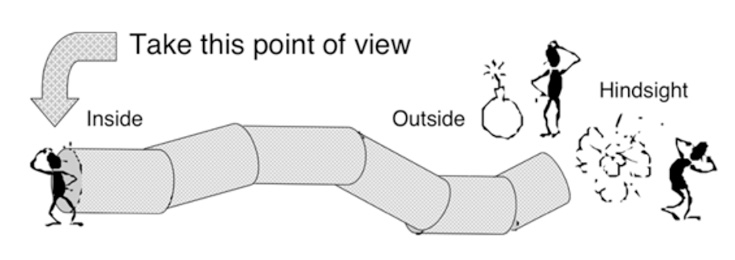‘Human error’ is your starting point, not your end point.
| The old view of human error | The new view of human error |
|---|---|
|
Human error caused the accident. Identify where people went wrong – decisions, judgements, inaccurate assessments. |
Human error is a symptom, not a cause of an accident. Try to understand why the person’s actions made sense to them at the time, given the information available. |
It's important for an investigator to see the event from the point of view of the people involved. The investigator must consider the information the person had available to them at the time. To do this, the investigator needs to get ‘inside the tunnel’ with them and see what they saw. The investigator has the benefit of knowing the outcome of the incident. The person involved didn’t have this advantage at the time, so it’s critical for an investigator to see the situation as it unfolded for them.

See the unfolding world from the point of view of people inside the situation – not from the outside or from hindsight. (Image source: Sidney Dekker ‘The Field Guide to Understanding Human Error.’)
If it made sense to one person to do it that way, it’s likely it will also make sense to another person to do it that way in the future.
If you have any questions about this topic, email humanfactors@caa.govt.nz